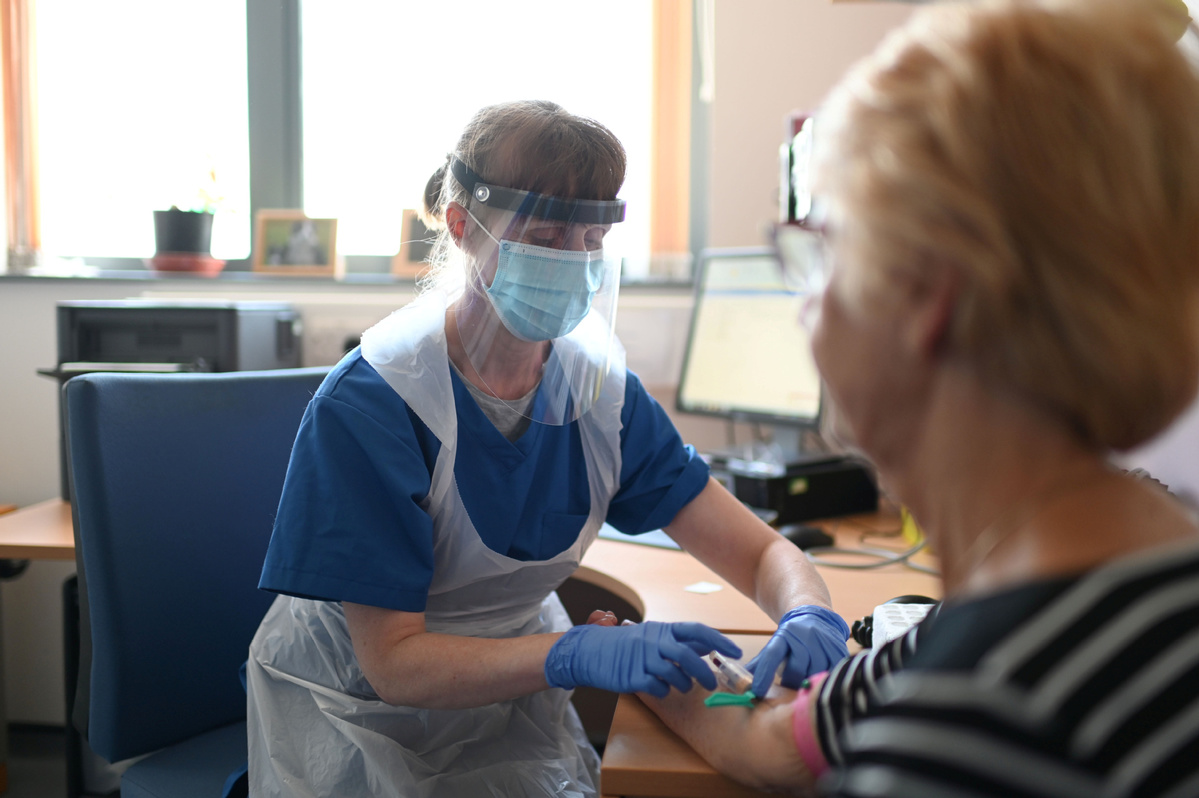Door opens to British govt facing lawsuits
By EARLE GALE in London | China Daily Global | Updated: 2022-04-29 10:03

Discharging untested elderly people to care homes put thousands in harm's way
The British government is set to face a flood of lawsuits following a High Court ruling that it acted illegally in discharging thousands of untested people from hospitals into care homes for the elderly during the early days of the novel coronavirus pandemic.
The court said the practice in early 2020 led to a flurry of COVID-19 cases in United Kingdom care homes, which experts believe claimed the lives of around 20,000 people.
Jason Coppel, a barrister involved in the legal action against Public Health England and the UK's health minister at the time, Matt Hancock, said care home residents were known to be vulnerable to COVID-19, and the risk of asymptomatic transmission was also known.
"The government's failure to protect (that population), and … steps taken by the government which introduced COVID-19 infection into care homes, represent one of the most egregious and devastating policy failures in the modern era," he wrote in his submission to the court.
The legal action was brought by two women, Cathy Gardner and Fay Harris, who lost elderly relatives to COVID-19 in early 2020.
Gardner told journalists she "believed all along" her father and other care home residents "were neglected and let down by the government".
"The High Court has now vindicated that belief, and our campaign to expose the truth," she said.
Harris told reporters the government's actions "exposed many vulnerable people to a greater risk of death; and many thousands did die".
The legal action related to discharges from hospital between January and early April 2020. By mid-April, all patients were being routinely tested for COVID-19 before discharge.
Alison Holt, the BBC's social affairs editor, said the ruling by Lord Justice Bean and Mr Justice Garnham was "highly significant" because the government had always claimed it put a "protective ring" around care homes.
The judges said the government did not, however, issue enough protection, and should have told care homes that "where an asymptomatic patient, other than one who has tested negative, is admitted to a care home, he or she should, so far as practicable, be kept apart from other residents for up to 14 days".
After the ruling, Prime Minister Boris Johnson said in Parliament he wanted to renew his "apologies and sympathies" to "all those who lost loved ones during the pandemic".
"I want to remind the house of what an incredibly difficult time that was, and how difficult that decision was," he said. "We didn't know very much about the disease; the thing that we didn't know in particular ...was that COVID could be transmitted asymptomatically."
Charlie Williams, a spokesman for the COVID-19 Bereaved Families for Justice group, told the BBC: "We now need to see those responsible for those dark days held accountable and lessons learned to save lives, ensuring the grim scenes of spring 2020 are never repeated again."
























